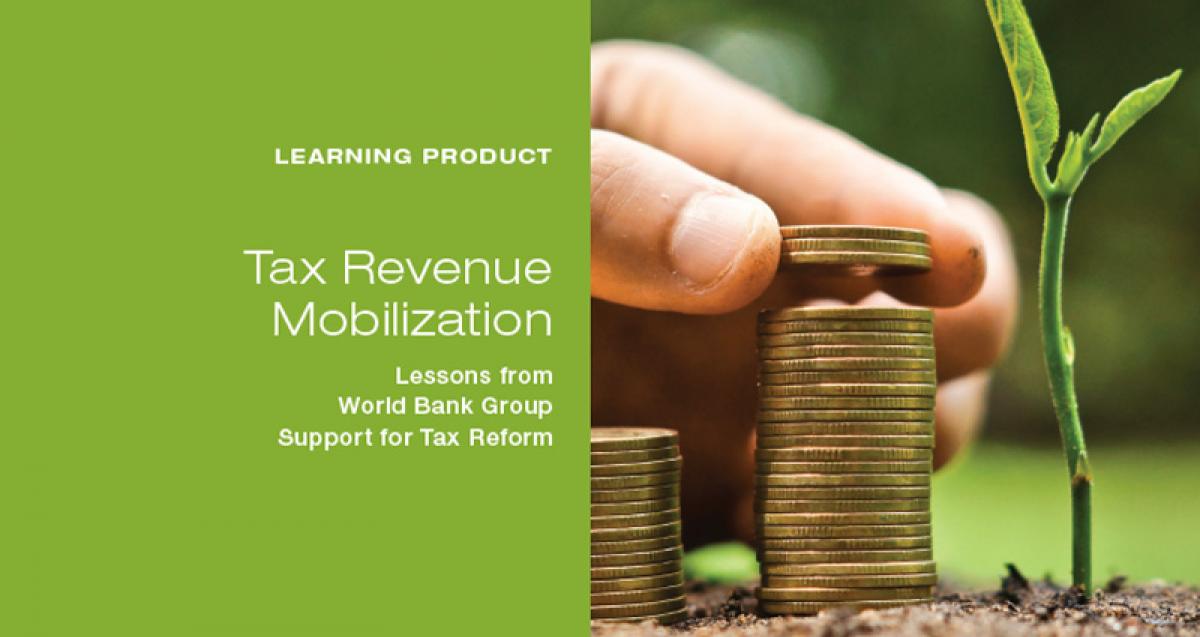
Taxation has become a major area of development support and advice since the 2011 Global Partnership for Development Effectiveness. Several reasons for this are likely: the potential benefits for state-building, growing desire for independence from foreign development assistance, the fiscal impact of trade liberalization, the financial and debt crisis in countries that provide development assistance, and the acute financial needs of some developing economies.
“From Billions to Trillions: Transforming Development Finance Post-2015,” an initiative spearheaded by the multilateral development banks and the International Monetary Fund” (IMF) has increased the urgency or attention to taxation in developing and emerging economies. This initiative, as well as the 2015 Financing for Development Conference, has highlighted the need for emerging and developing economies to support achievement of the 2030 Sustainable Development Goals (SDGs) through domestic resource mobilization (DRM). This has helped focus attention on constraints to growth, particularly in low-income economies, where domestic taxes and foreign private and market-related borrowing do not expand enough to compensate for declining flows of official development assistance.
The World Bank committed more funds to tax reforms in middle-income countries than low-income countries. Most of the projects and their corresponding high commitment amounts went to lower middle-income countries. Although, low-income countries received 24 percent of tax projects, they received only 5 percent of commitments (Figures 2 and 3).
This Learning Note is timely and pertinent to the work of several World Bank Global Practices, and primarily for the Governance Global Practice, which shepherds engagement in DRM. It has also strong cross-cutting relevance to the Macro-Fiscal Management (MFM) and Trade and Competitiveness (T&C) Global Programs. It is also relevant to political economy analyses that inform Systematic Country Diagnostics, since progressive taxation is political. It complements a parallel IEG evaluation on Private Capital Mobilization.
While limited in scope and depth, this note is designed to open the way for more thorough and deeper evaluation work, in particular through an evaluation of World Bank Group Support to Public Finance envisaged for FY2018.
The note reviews World Bank Group support to tax policy and administration reform approved and closed over FY2005–15, as provided through development policy operations (DPOs), investment projects, and IFC Advisory Services on business taxation. Except for five illustrative country examples, it draws on three main sources: (i) a systematic review of Implementation Completion and Results Report Reviews (ICRRs) of identified World Bank operations and EvNotes for IFC projects; (ii) Project Performance Assessment Reports (PPARs) covering operations identified above, and (iii) relevant country case studies from various IEG evaluations.
The review has been hampered by a number of weaknesses related to the coding of operations and the limited depth and breadth of existing IEG evaluation evidence on World Bank Group support to tax reforms. As a result of the limitations of existing IEG evaluation evidence, a number of the guiding questions identified in the Concept Note could not be addressed properly. The review therefore focused on the description of the tax portfolio and tax components and on questions related to development effectiveness. Given the subject matter, the diversity of tax reform objectives, and the overwhelming share of Development Policy Operations (DPOs) in the portfolio of support for tax reforms, illustrative country examples have been chosen mostly from among the DPOs targeting an increase in tax revenue collection.
|
Category |
Projects | Commitment amount | Commitment for tax | Countries | ||||
| (Percentage) | (Number) | (Share) | (US$m) | (Share) | (US$m) | (Share) | (Number) | (Share) |
|
a) Overall projects 0-10[ |
24 |
12% |
1,321 |
5% |
181 |
3% |
9 |
11% |
|
b) Reviewed projects 0-10[ |
9 |
9% |
540 |
3% |
90 |
3% |
2 |
5% |
Sources: WDI, GFS, IMF
Note: *Regional projects.
Lessons are drawned both from the existing evaluation evidence (ICRRs and PPARs when available) and the findings of this review. Given the limitations of the available data and evaluative material, the lessons drawn are provisional and need to be confirmed through deeper and more thorough evaluation work. The review raises issues not only for the design and implementation of operations but also for country programs and World Bank Group strategic engagement in tax policy and administration reforms.